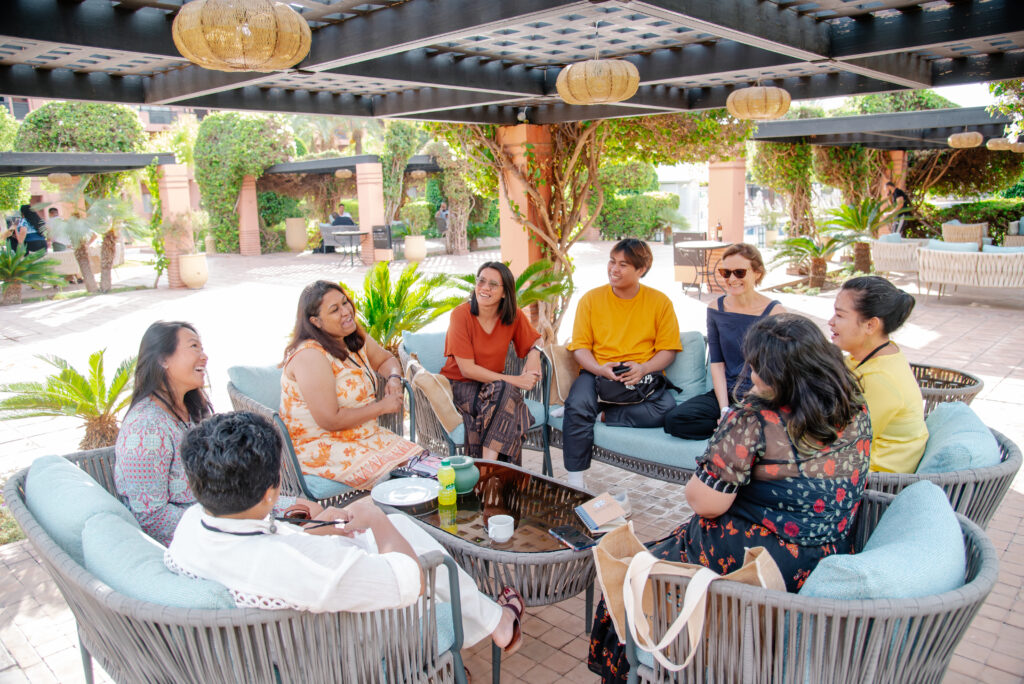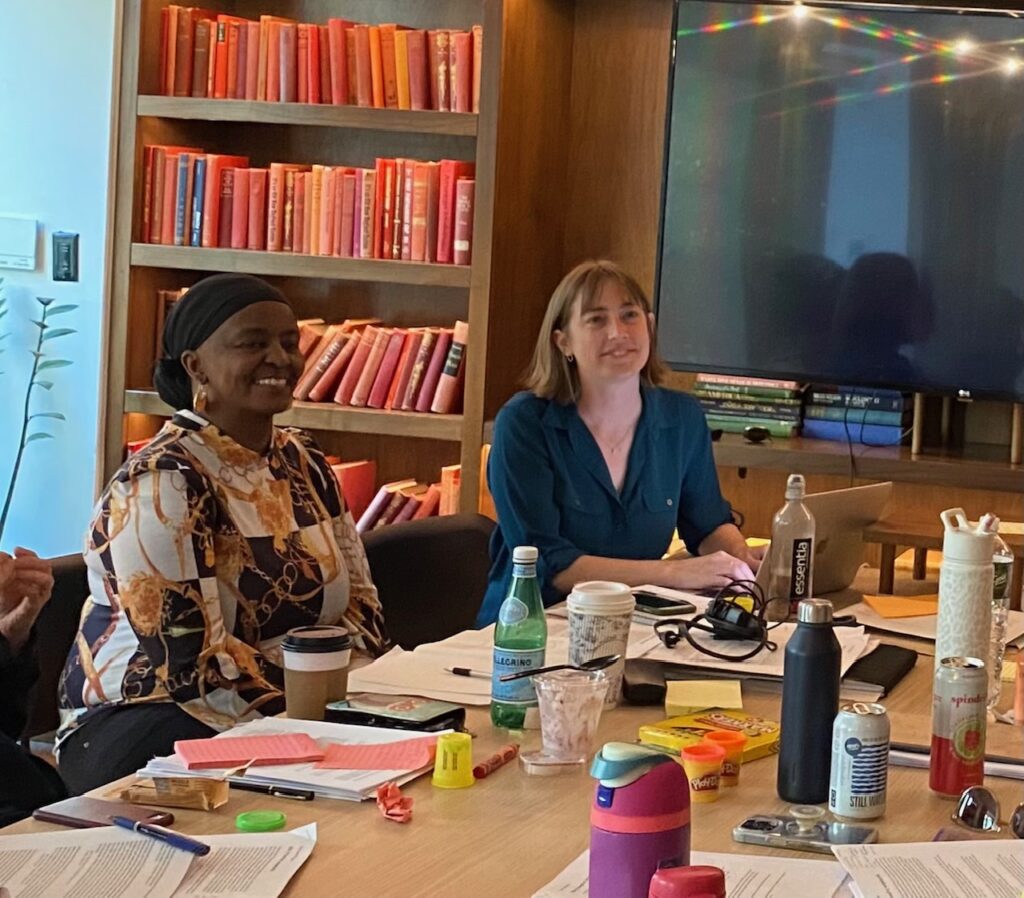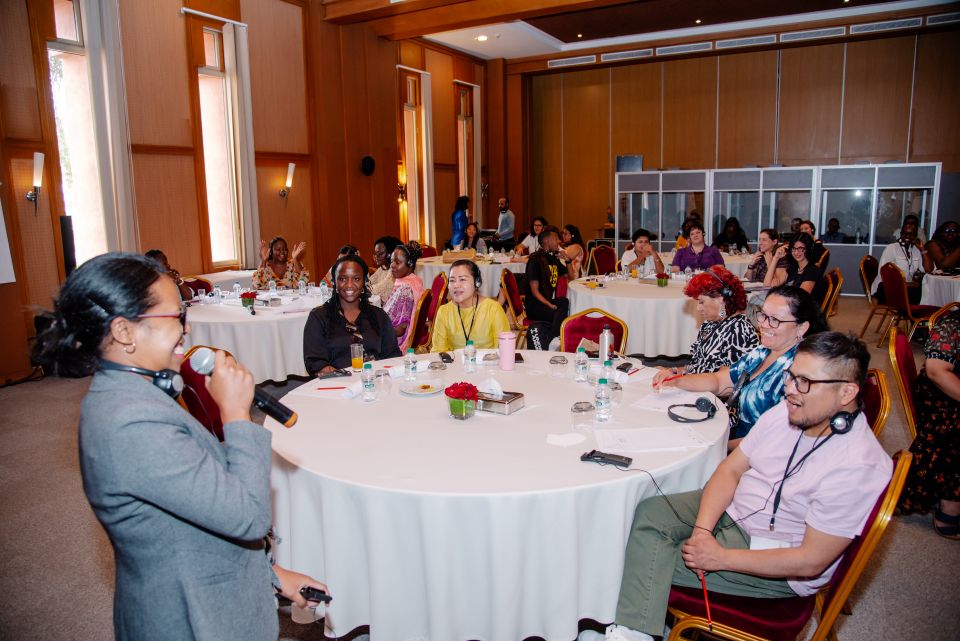Power Reimagined: Creating a Community of Learning, Sharing, and Caring
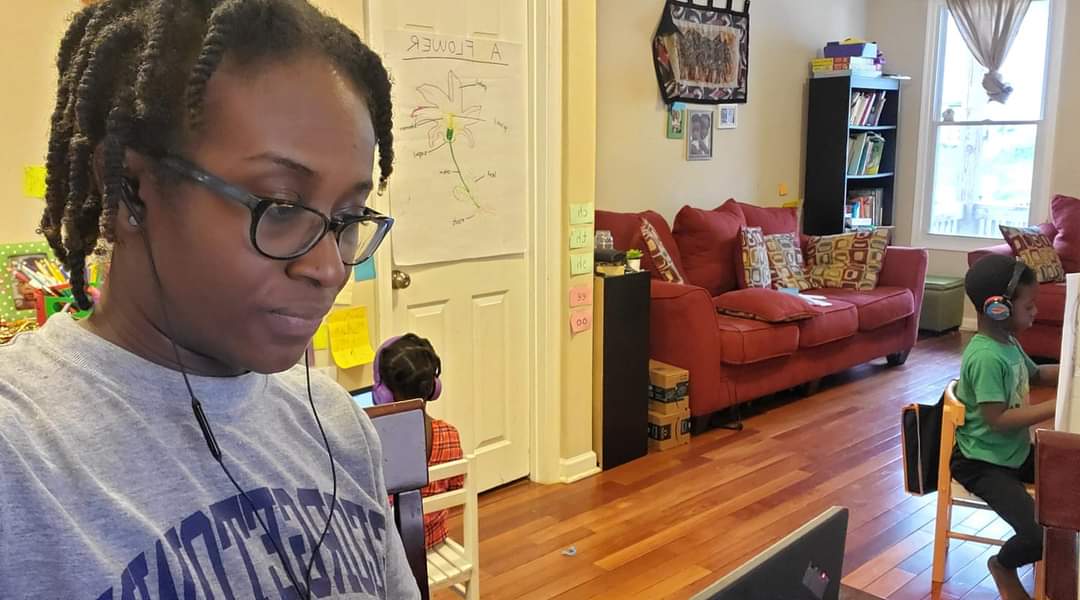
As a Ghanaian American woman working in the international development sector, I navigate mostly White spaces at headquarters while also engaging with and craving more direct interactions with overseas partners, especially those in Africa. Across all these settings, I juggle the complex intersections of my multiple identities – age, sex, race, religion, culture, and motherhood – while being as polished as possible to combat the stereotypes of Black women as loud, unmanageable, unproductive, angry, struggling, or demanding, to name a few.
In the early days of the Covid-19 pandemic, and the aftermath of global protests against the murder of George Floyd, I found that the pronounced and overt calls to “decolonize international development” aligned with my outspokenness and engagements with Black women’s groups such as At the Forefront, PopWorks Africa, and When Black Women Gather. What may have been considered “radical” just a few years before now seemed encouraged in my work. Nowhere was this more palpable than at WomenStrong International, where I was consulting as a technical advisor.
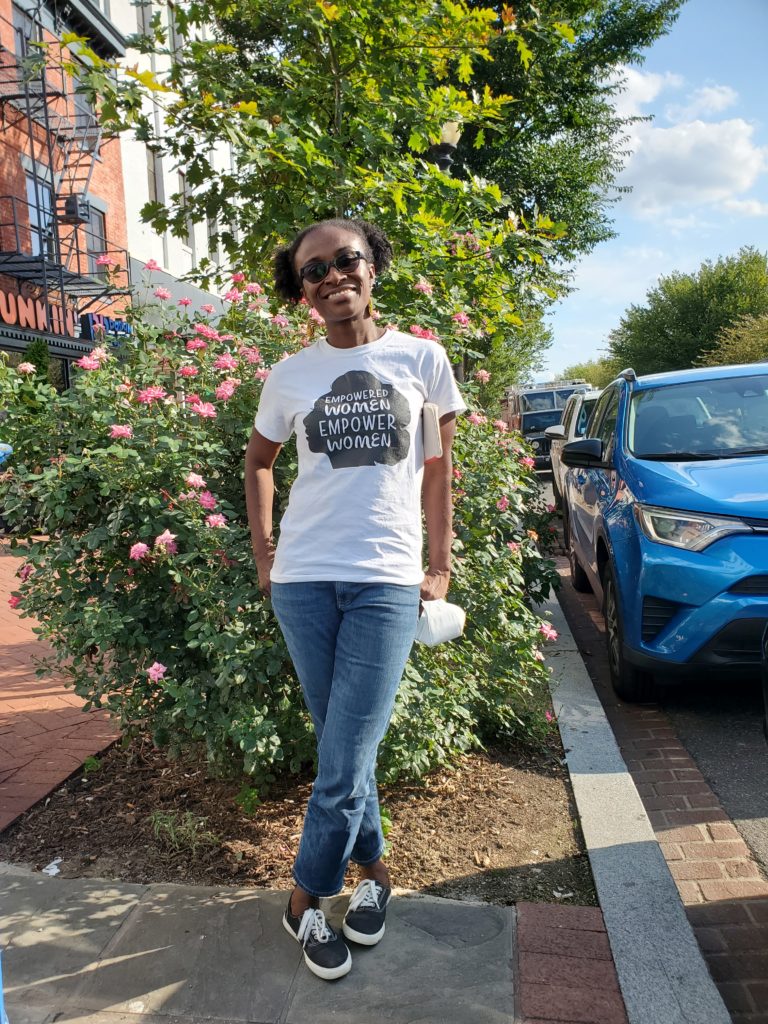
True decolonization of international development begins with giving up power – and that shift requires commitment, time, and trust-building. At WomenStrong, this begins with seeing and naming grantees as partners. Partners are then actively included in the shaping and implementation of all work and practices. WomenStrong routinely obtains feedback from partners during partner meetings, external webinars, and within their online portal. The vision of grassroots action and women-driven solutions was not just “talk” but is integrated into the organization’s very practices. After all, desiring and working towards feminist and local solutions requires the availability of necessary resources to catalyze change institutionally and in communities.
Within weeks of the pandemic bringing the US into a state of shutdown, WomenStrong was actively rethinking and shifting the way it works. WomenStrong created advisory board groups, encouraged partners to lead activities, and encouraged critical inquiry to promote learning. Justice was not just in one-voice feminism, but through accepting a range of perspectives and incorporating language justice (e.g., ensuring proper interpretation of webinars/meetings, multilingual resources, facilitating accessibility) and leadership from all staff levels as a pillar of the work.
Donors and grantmaking organizations can have the flexibility – and the power – to change operations to meet the needs of grantees. At the outset of the pandemic, WomenStrong asked partners what was most needed. Many partners were dealing with challenges related to balancing work, shutdowns, remote learning for their families, and mental health. I was surprised that rather than insisting on deadlines or deliverables, WomenStrong pivoted to unrestricted funding and supported partners in changing project plans. Rather than stifle productivity, this freed up partners to attend to their challenges during this uncertain and chaotic time, support their communities in the best way possible, and return invigorated for better outcomes.
One of the greatest things to witness was the unexpected ways in which doors opened as WomenStrong consciously chose to disrupt the narratives and power dynamics of the status quo. WomenStrong’s openness translated into staff learning from partner organizations just as much as staff and consultants were supporting partners in their technical work.
Leading with humanity strengthened partnerships and cultivated a sense of community. I watched partners flourish in this environment of openness and self-actualization – trying creative ways of documenting their lessons learned and boldly stepping into new leadership roles.
While supporting the work of these incredible partners, I, too, felt supported to arrange my life as I needed it to be amidst a myriad of challenges. I went from trying to angle my camera so people could see the one spot of the room I had cleaned off instead of the explosion of food, books, activities/toys, and other random things around me, to appreciating the absolute necessity of doing what worked best for me. Sometimes, it even meant being okay with leaving a call to attend to a child’s needs or turning down tasks so that I could care for myself emotionally or join in protests and other social actions.
Donors have flexibility in crafting realities that can edify the people working and those being served, even in a time of major uncertainty. To witness and experience the WomenStrong approach to these shifts in grantmaking has been transformative. Seeing partners from across the globe observe moments of self-care amidst personal and professional challenges inspired others, including myself, to live authentically. Pushing on did not mean ignoring the vulnerabilities and exhaustion of pandemic life, but rather, accepting and honoring the realities represented in our community. From adjustments in staff care and grantmaking operations to internal and external communications, WomenStrong shines a bright light on what is possible when organizations not only listen to the needs of their grantees, but make the shifts needed to meet those needs. It is encouraging to consider the possibilities of such a model – where respite, choice, and power are fused – as the way forward in grantmaking.
